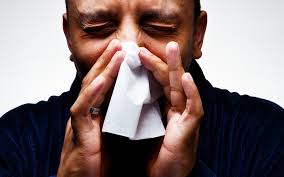
Autumn has arrived, and with it – I’m afraid – the barrage of mischievous little microbes to wreck havoc on our bodies! Most upper respiratory tract infections (URTIs) are viral in origin, so antibiotics make no diddly squat of a difference. But the common cold is by no means a trivial issue – ask any man beleaguered by ‘man flu’, and he will no doubt bemoan his suffering and sorrow.
Surely, a species as advanced as us humans has some trick up our sleeve to slam the common cold? We have no effective vaccine against the cold. Nor do we have antiviral medications to cut our enemy viruses down at their Achilles. And there is only so much contact and respiratory isolation one can impose upon our loved ones.
Let us review the evidence. In a meta-analysis1 involving 10,708 participants, regular supplementation with at least 200mg daily of Vitamin C did not significantly reduce the risk of picking up a cold, but did shorten the duration and severity of symptoms. But you got to be in it to win it: vitamin C may work as a preventative measure, but has no significant effect if taken after onset of symptoms.
How about good ‘ol garlic? In addition to its deliciossimo flavour, garlic has long been touted to have antimicrobial effects. Only one clinical trial2 of 146 participants was robust enough to deserve the attention of Cochrane reviewers. The good news is that daily garlic supplementation for 3 months reduced the risk of catching a cold – but did not hasten recovery once you have been hit. The bad news? You may have to put up with a rash and odour. But folks, let’s not go bathing in tubs of garlic just yet; remember, this was the result from one trial.
Pining for a bit of Echinacea? There is some weak evidence to suggest that Echinacea may shorten the duration of colds, but does not prevent colds.3 However, it’s difficult to draw definitive conclusions, due to the multitude of different preparations of Echinacea out there. Hold fast from starting that Echinacea greenhouse in your backyard for now.
How about probiotics? They’re so hot right now, surely they can do no wrong! Well, a meta-analysis4 of 12 trials involving 3720 participants showed that probiotics (most commonly Lactobacilli & Bifidobacteria) reduced the risk of acquiring an URTI by ~47% and the duration of URTIs by 1.9 days. But take with a grain of salt – the evidence was deemed overall “low quality”. (Actually, say no to added salt.) PS: Don’t bother with homeopathy.5
So, to wrap it up: wrap up! Bunker down, maybe with a bit of vitamin C, garlic and probiotics. Or maybe wait for more convincing evidence. It’s only five more months until spring – let the countdown begin!
- Hemilä H, Chalker E. Vitamin C for preventing and treating the common cold. Cochrane Database of Systematic Reviews 2013, Issue 1. Art. No.: CD000980
- Lissiman E, Bhasale AL, Cohen M. Garlic for the common cold. Cochrane Database of Systematic Reviews 2014, Issue 11. Art. No.: CD006206
- Karsch-Völk M, Barrett B, Kiefer D, Bauer R, Ardjomand-Woelkart K, Linde K. Echinacea for preventing and treating the common cold. Cochrane Database of Systematic Reviews 2014, Issue 2. Art. No.: CD000530.
- Hao Q, Dong BR, Wu T. Probiotics for preventing acute upper respiratory tract infections. Cochrane Database of Systematic Reviews 2015, Issue 2. Art. No.: CD006895.
- Hawke K, van Driel ML, Buffington BJ, McGuire TM, King D. Homeopathic medicinal products for preventing and treating acute respiratory tract infections in children. Cochrane Database of Systematic Reviews 2018, Issue 9. Art. No.: CD005974.




